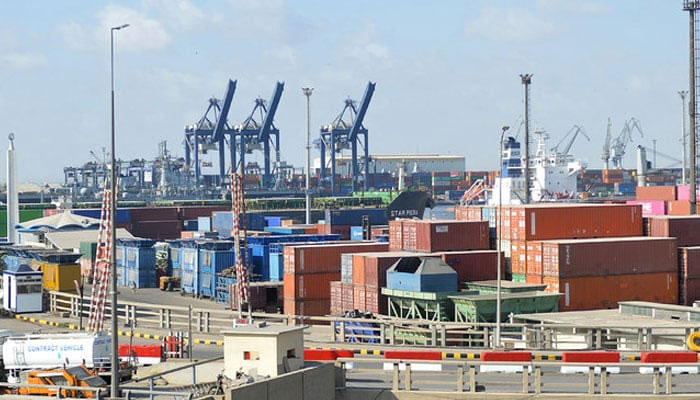Overcoming negative perceptions
LAHORE: A country’s negative image can significantly impact its economy by discouraging foreign investment, reducing trade and weakening tourism. This is why, despite many positive aspects, Pakistan still struggles to attract adequate foreign investment.
A negative perception hinders a country’s ability to attract foreign direct investment (FDI), as investors prioritize stability, security, and predictability. Even if the actual risk is lower than perceived, a negative image can increase borrowing costs, reduce capital inflows, and destabilize currency values. It may also limit market access and partnership opportunities, as buyers tend to shift towards more stable regions.
One underreported advantage in Pakistan is that, despite past terrorism challenges, its industrial base has remained largely intact. This resilience suggests that militant activities have not directly targeted the country’s economic backbone -- perhaps to avoid long-term destabilisation or due to local factors, such as militants refraining from actions that harm local interests or employment. This resilience reflects the strength of Pakistan’s industries and the effectiveness of the state’s counter-terrorism measures. Domestic negativity can often prove more damaging than external factors. When local voices -- whether media, business leaders, or opposition groups -- promote narratives of instability or governance issues, it instils doubts in potential investors about the country’s future. Pakistan has faced such internal pessimism, where political instability and criticism signal uncertainty to foreign stakeholders.
Despite these challenges, several companies continue to post strong earnings in Pakistan, showing that the local market can be profitable for businesses with a long-term perspective. However, new investors remain cautious due to perceptions of political instability, governance challenges, regulatory unpredictability and occasional currency volatility.
Negative perceptions often impact a country’s economy more than its government. Investors look at long-term economic stability and the broader business environment rather than short-term political leadership. Frequent shifts in policy, politically motivated actions, or a turbulent political climate can create an adverse image that discourages investment, even if the current government remains unaffected.
Foreign think tanks consider sentiments and information from within a country but tend to form independent assessments based on data, international reports and local insights. However, narratives originating domestically still influence their perspectives. In Pakistan’s case, ongoing negative media coverage and pessimistic reports can colour foreign judgements.
Numerous strategies exist to counter false narratives, yet Pakistani authorities often spend time targeting those responsible for spreading negativity rather than countering it through proactive approaches. Other nations have overcome similar challenges by engaging foreign media and think tanks directly to present a balanced perspective. They employ transparent communication strategies to clarify government policies and challenges, which prevents speculation from growing unchecked. Successful companies in the country are also used to highlight stability and growth potential.
Pakistan has also lagged in strengthening institutions to convey effective governance and reform achievements. The private sector has not been sufficiently involved in outreach and image-building initiatives. Countries like Vietnam and Turkey have effectively countered negative perceptions by coordinating efforts between government bodies and the private sector.
-
 Princess Beatrice, Eugenie Are ‘not Innocent’ In Epstein Drama
Princess Beatrice, Eugenie Are ‘not Innocent’ In Epstein Drama -
 Reese Witherspoon Goes 'boss' Mode On 'Legally Blonde' Prequel
Reese Witherspoon Goes 'boss' Mode On 'Legally Blonde' Prequel -
 Chris Hemsworth And Elsa Pataky Open Up About Raising Their Three Children In Australia
Chris Hemsworth And Elsa Pataky Open Up About Raising Their Three Children In Australia -
 Record Set Straight On King Charles’ Reason For Financially Supporting Andrew And Not Harry
Record Set Straight On King Charles’ Reason For Financially Supporting Andrew And Not Harry -
 Michael Douglas Breaks Silence On Jack Nicholson's Constant Teasing
Michael Douglas Breaks Silence On Jack Nicholson's Constant Teasing -
 How Prince Edward Was ‘bullied’ By Brother Andrew Mountbatten Windsor
How Prince Edward Was ‘bullied’ By Brother Andrew Mountbatten Windsor -
 'Kryptonite' Singer Brad Arnold Loses Battle With Cancer
'Kryptonite' Singer Brad Arnold Loses Battle With Cancer -
 Gabourey Sidibe Gets Candid About Balancing Motherhood And Career
Gabourey Sidibe Gets Candid About Balancing Motherhood And Career -
 Katherine Schwarzenegger Shares Sweet Detail From Early Romance Days With Chris Pratt
Katherine Schwarzenegger Shares Sweet Detail From Early Romance Days With Chris Pratt -
 Jennifer Hudson Gets Candid About Kelly Clarkson Calling It Day From Her Show
Jennifer Hudson Gets Candid About Kelly Clarkson Calling It Day From Her Show -
 Princess Diana, Sarah Ferguson Intense Rivalry Laid Bare
Princess Diana, Sarah Ferguson Intense Rivalry Laid Bare -
 Shamed Andrew Was With Jeffrey Epstein Night Of Virginia Giuffre Assault
Shamed Andrew Was With Jeffrey Epstein Night Of Virginia Giuffre Assault -
 Shamed Andrew’s Finances Predicted As King ‘will Not Leave Him Alone’
Shamed Andrew’s Finances Predicted As King ‘will Not Leave Him Alone’ -
 Expert Reveals Sarah Ferguson’s Tendencies After Reckless Behavior Over Eugenie ‘comes Home To Roost’
Expert Reveals Sarah Ferguson’s Tendencies After Reckless Behavior Over Eugenie ‘comes Home To Roost’ -
 Bad Bunny Faces Major Rumour About Personal Life Ahead Of Super Bowl Performance
Bad Bunny Faces Major Rumour About Personal Life Ahead Of Super Bowl Performance -
 Sarah Ferguson’s Links To Jeffrey Epstein Get More Entangled As Expert Talks Of A Testimony Call
Sarah Ferguson’s Links To Jeffrey Epstein Get More Entangled As Expert Talks Of A Testimony Call




